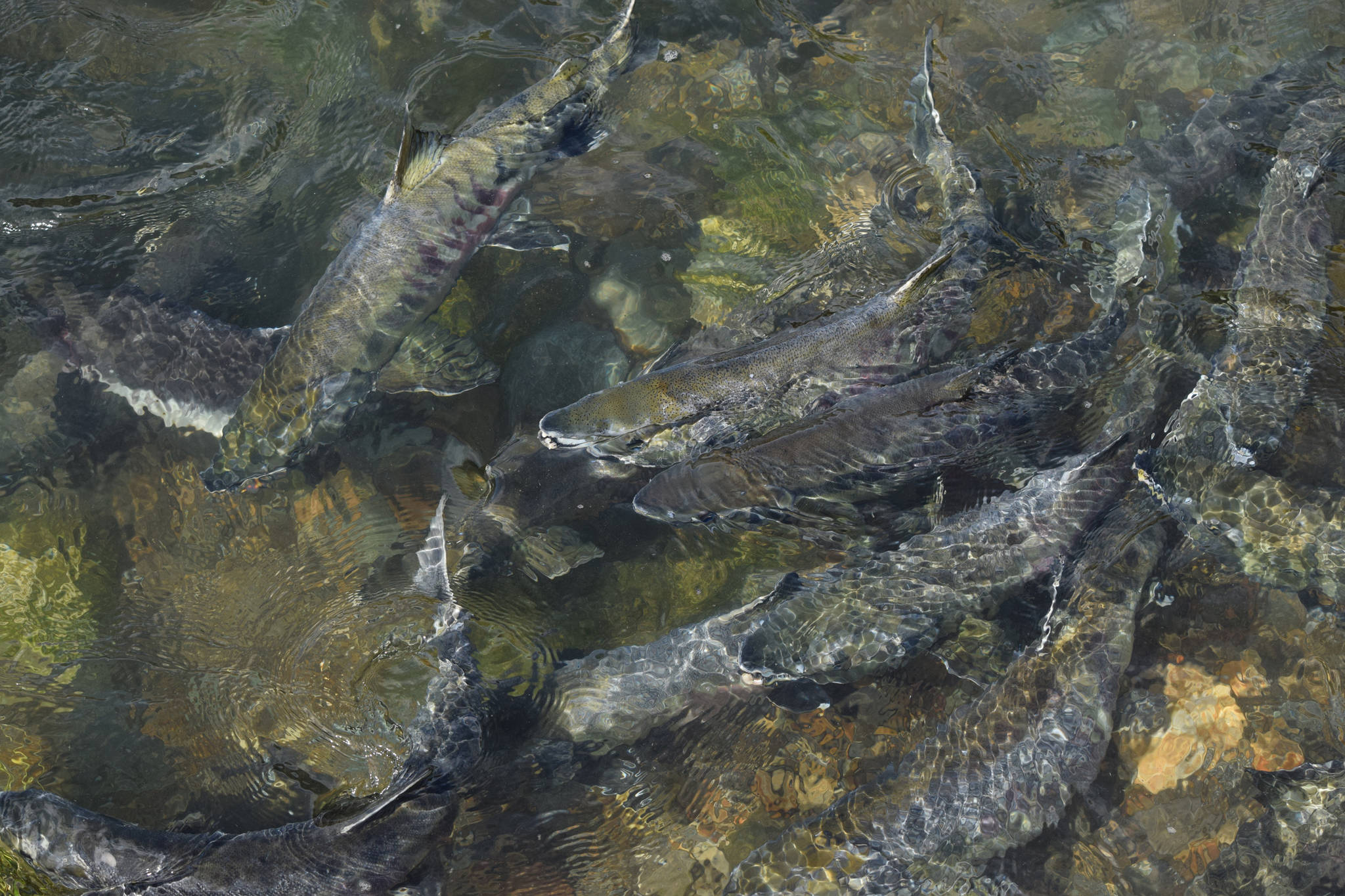Update: This article has been updated to include a comment from Stand for Alaska, a group opposing the Stand for Salmon ballot initiative.
A controversial ballot initiative aimed at protecting Alaska salmon habitat will make it on a November ballot, it was announced on Thursday, if it can withstand a constitutional challenge in the Alaska Supreme Court.
The Stand for Salmon initiative, as it’s known, cleared a review by the Division of Elections (DoE) early this week and was signed by Lt. Gov. Byron Mallott on Tuesday, DoE said in an email to the Empire. It would create more stringent permitting requirements for development on salmon habitat in Alaska.
DoE was tasked with making sure the initiative has enough signatures and fulfills other filing requirements before submitting their report to Mallott’s office for review.
Daily review reports on DoE’s website listed the initiative’s status as “properly filed” on Thursday morning. Backers and opponents are now waiting on the courts to decide if the initiative will be printed on a November general or primary election ballot.
“We’re in a holding pattern,” Mallott Chief of Staff Claire Richardson said.
Stand for Salmon has several conservation groups backing it, including the eponymous group Stand for Salmon, whose director is Ryan Schryver. In a Thursday phone interview, Schryver said the group is “extremely confident the Supreme Court is going to agree with the lower court and give Alaska the opportunity” to vote on the initiative.
Stand for Alaska, a group opposing the initiative, said via spokeswoman Kati Cappozi that they have “long expected this measure to be approved to go before Alaska voters later this year,” and that they will work hard to make their case to voters in the months before November’s election.
“We look forward to a robust discussion in the coming months so voters will learn that this proposed ballot measure is not what it claims to be. Our job will be to help voters understand the negative impacts this flawed proposal will have on Alaska and Alaskans,” Cappozi wrote in a Thursday release.
The Alaska Supreme Court will hear oral arguments on the case April 26. A ruling can be expected sometime in the days or weeks following the hearing, according to Department of Law spokeswoman Cori Mills.
“Depending on what the court decides, the ballot initiative will either be on the ballot or not. It’s still our opinion that the Lieutenant Governor’s original decision is correct,” Mills said. Mills later clarified that the court could also decide to excise some of the ballot’s language instead of denying or approving it wholesale.
Mills referred to a legal decision made last fall to allow Stand for Salmon to move forward and gather signatures, 32,127 of which were needed to make a state ballot. Following a Department of Law opinion, Mallott tried to halt the initiative last fall based on the grounds that Stand for Salmon violates the Alaska Constitution. That request was denied in superior court. The Department of Law appealed the lower court’s ruling, sending the debate to Alaska Supreme Court, where a final decision will be made.
The whole debate centers around the question if Stand for Salmon allocates, or appropriates, state resources, something only the Legislature is constitutionally allowed to do.
It’s Mallott and the Department of Law’s opinion that Stand for Salmon does, in effect, spend state resources. They argue that the initiative would by default categorize most of Alaska as salmon habitat and would require developers to prove that it isn’t, effectively allocating state land to salmon and the industry and cultural practices that depend on it.
Stand for Salmon also requires development projects to substantially rehabilitate salmon habitat in the same place they build, not in a different location as previously allowed. Large projects like Pebble Mine would be barred from continuing, the Department of Law argues, because they wouldn’t be permitted under Stand for Salmon’s permitting requirements.
“The plain language of (Stand for Salmon) forbids the State from permitting an activity that cannot permanently preserve anadromous fish habitat—thus precluding certain large resource development projects—it effects an appropriation,” one of the Department of Law’s legal briefs reads.
But Stand for Salmon’s backers say this is a misreading of the initiative’s language. Defining how much rehabilitation a project will need will be left to the authority of the Alaska Department of Fish and Game, which could allow a large project like Pebble to continue if it avoids “significant adverse effects” to salmon habitat.
Attorney Valerie Brown, of nonprofit Environmental Law firm Trustees for Alaska, will argue for the initiative in April’s hearing, according to Schryver. Brown was unavailable by phone Thursday.
If the Alaska Legislative session ends on time, the initiative will be bound for the primary election. If the Legislature goes into a special session, the initiative is expected to appear on a ballot in the general election.
• Contact reporter Kevin Gullufsen at 523-2228 and kgullufsen@juneauempire.com. Follow him on Twitter at @KevinGullufsen.

